What Safety Protocols Prevent Diesel Generator Fire Hazards?
Diesel generators are essential power solutions for various industries, but they come with inherent fire risks that demand serious attention. When it comes to preventing fire hazards associated with diesel generators, including 25kw diesel generator units, implementing robust safety protocols is crucial. These protocols encompass regular maintenance, proper fuel storage, and comprehensive staff training to mitigate risks effectively.
A well-maintained generator is less likely to malfunction or overheat, reducing the chances of fire outbreaks. Proper fuel storage practices prevent accidental spills and minimize the risk of combustion. Additionally, a well-trained staff can quickly identify potential hazards and respond appropriately in emergencies. By adhering to these safety measures, businesses can significantly reduce the likelihood of generator-related fires and ensure uninterrupted operations.
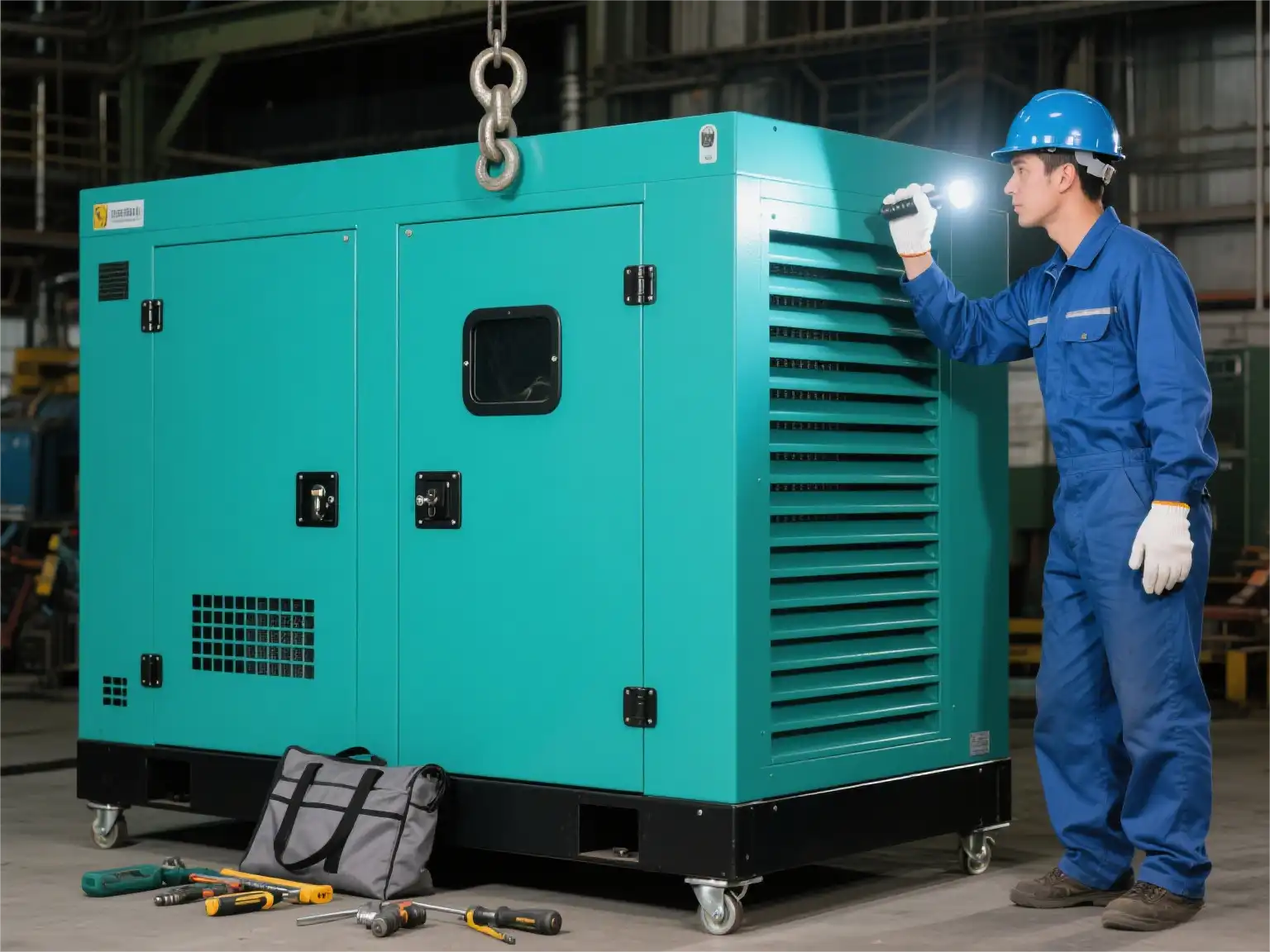
Essential Maintenance Checks to Mitigate Risks
Regular maintenance is the cornerstone of fire prevention for diesel generators. A comprehensive maintenance schedule should include several key checks to ensure optimal performance and safety:
Fuel System Inspection
Regular inspection of the fuel system is critical to prevent leaks and contamination. This includes checking fuel lines, filters, and tanks for signs of wear or damage. Fuel quality should also be monitored to prevent the accumulation of sediment or water, which can lead to engine problems and increased fire risk.
Electrical System Evaluation
The electrical components of a diesel generator require careful attention. Loose connections, frayed wires, or faulty insulation can cause sparks or short circuits, potentially leading to fires. Regular checks of batteries, alternators, and control panels are essential to identify and address any electrical issues promptly.
Cooling System Maintenance
Overheating is a common cause of generator fires. Ensuring the cooling system functions properly is vital. This involves checking coolant levels, inspecting hoses for leaks, and cleaning radiators to maintain efficient heat dissipation. For equipment like a 25kw diesel generator, a well-maintained cooling system helps prevent excessive heat buildup that could ignite nearby combustible materials.
Exhaust System Checks
The exhaust system can reach extremely high temperatures during operation. Regular inspections for cracks, leaks, or blockages in the exhaust pipes and muffler are crucial. Ensuring proper insulation and clearance from combustible materials helps prevent fires caused by heat transfer from the exhaust system.
At Jlmech, we understand the importance of these maintenance checks. Our team of skilled technicians performs thorough inspections and maintenance to keep your diesel generators in top condition, minimizing fire risks and ensuring reliable performance.
Proper Fuel Storage: Avoiding Combustion Dangers
Proper fuel storage is a critical aspect of preventing diesel generator fire hazards. Improper storage not only poses a fire risk but can also compromise the performance and longevity of your generator. Here are key considerations for safe fuel storage:
Appropriate Storage Containers
Use only approved containers designed specifically for diesel fuel storage. These containers should be made of materials resistant to corrosion and capable of withstanding the chemical properties of diesel fuel. Avoid using containers that have previously held other substances, as cross-contamination can occur.
Storage Location
The location of your fuel storage is crucial. Keep fuel containers in a cool, dry place away from direct sunlight and heat sources. The storage area should be well-ventilated to prevent the accumulation of fumes. Ensure the area is secured to prevent unauthorized access and potential tampering.
Spill Prevention and Containment
Implement measures to prevent and contain spills. Use drip trays under storage containers and during refueling operations, especially when working with equipment like a 25kw diesel generator. Have absorbent materials readily available to quickly clean up any spills. Regular checks for leaks or signs of container deterioration can help prevent larger spills and potential fire hazards.
Rotation and Quality Maintenance
Diesel fuel can degrade over time, potentially causing issues with your generator and increasing fire risks. Implement a fuel rotation system to ensure older fuel is used first. Regularly test stored fuel for quality and consider using fuel stabilizers for long-term storage to maintain its integrity.
Jlmech prioritizes safety in all aspects of generator operation, including fuel storage. Our experts can provide guidance on setting up safe and efficient fuel storage systems tailored to your specific needs and local regulations.
Training Staff: Key to Fire Prevention
While proper maintenance and storage are crucial, the human element plays an equally important role in preventing diesel generator fire hazards. Comprehensive staff training is essential to ensure that all personnel involved in generator operation and maintenance are equipped with the knowledge and skills to prevent fires and respond effectively in case of emergencies.
Operational Safety Training
Staff should receive thorough training on the safe operation of diesel generators, including 25kw diesel generator models. This training should cover startup and shutdown procedures, monitoring during operation, and recognizing signs of potential issues. Understanding the generator's normal operating parameters helps staff quickly identify abnormal conditions that could lead to fire hazards.
Emergency Response Protocols
Develop and regularly practice emergency response procedures specific to generator-related fires. Staff should know how to safely shut down the generator in an emergency, use fire suppression equipment, and evacuate the area if necessary. Regular drills can help reinforce these procedures and ensure quick, effective responses in real emergencies.
Fire Extinguisher Training
Ensure all staff members are trained in the proper use of fire extinguishers suitable for electrical and fuel fires. This includes understanding the different types of fire extinguishers and when to use each type. Practical training sessions can provide hands-on experience in operating fire extinguishers effectively.
Continuous Education
Fire prevention strategies and technologies evolve over time. Implement a program of continuous education to keep staff updated on the latest safety protocols and best practices. Regular refresher courses and safety meetings can help maintain a high level of awareness and readiness among your team.
At Jlmech, we offer comprehensive training programs to ensure your staff is well-prepared to operate and maintain diesel generators safely. Our expert trainers provide both theoretical knowledge and practical skills to enhance your team's capabilities in fire prevention and emergency response.
Jlmech's commitment to safety extends to our product offerings. Our 25kw diesel generator is designed with advanced safety features to minimize fire risks. This generator is part of our silent diesel generator series, which operates at 220V and is ideal for various applications requiring reliable, quiet power.
Key features of our 25kw diesel generator include:
- AC Output: 25KW (part of our 20-3000KW range)
- Rated AC Voltage: 400/230V
- Frequency: 50Hz (60Hz available on request)
- Engine Speed: 1500 RPM
- Three-Phase output
- Silent operation with soundproof enclosure
- Water-cooled, turbocharged diesel engine
- Electric starting system
- Compact design for easy transport and installation
- CE/Euro 5/EPA/CARB certified
Our generator is engineered for businesses needing uninterrupted power in noise-sensitive settings, making it ideal for hospitals, construction sites, or off-grid operations. Whether for emergency backup or primary power, this generator ensures smooth operations with minimal disruption while maintaining the highest safety standards.
Conclusion
Preventing fire hazards in diesel generators requires a multifaceted approach combining regular maintenance, proper fuel storage, and comprehensive staff training. By implementing these safety protocols, businesses can significantly reduce the risk of generator-related fires and ensure the reliable operation of their power systems.
For businesses in the industrial, manufacturing, construction, healthcare, or hospitality sectors looking for robust and safe power solutions, Jlmech offers state-of-the-art diesel generators, including the 25kw diesel generator, designed with safety in mind. With over 29 years of experience in power solutions and a commitment to innovation and quality control, we provide efficient and reliable equipment tailored to your specific needs.
Ready to enhance your power generation safety and efficiency? Contact Jlmech today at skala@whjlmech.com to learn more about our diesel generator solutions and how we can help secure your power needs while prioritizing safety.
References
1. National Fire Protection Association. (2022). "NFPA 110: Standard for Emergency and Standby Power Systems."
2. Occupational Safety and Health Administration. (2021). "Powered Industrial Trucks (Forklift) eTool: Types & Fundamentals - Diesel."
3. Institute of Electrical and Electronics Engineers. (2023). "IEEE 3007.2: Recommended Practice for the Maintenance of Industrial and Commercial Power Systems."
4. Environmental Protection Agency. (2022). "Managing Underground Storage Tank (UST) Systems."
5. American Petroleum Institute. (2021). "API RP 2350: Overfill Protection for Storage Tanks in Petroleum Facilities."
6. International Organization for Standardization. (2023). "ISO 8528-12:2023 Reciprocating internal combustion engine driven alternating current generating sets — Part 12: Emergency power supply to safety services."
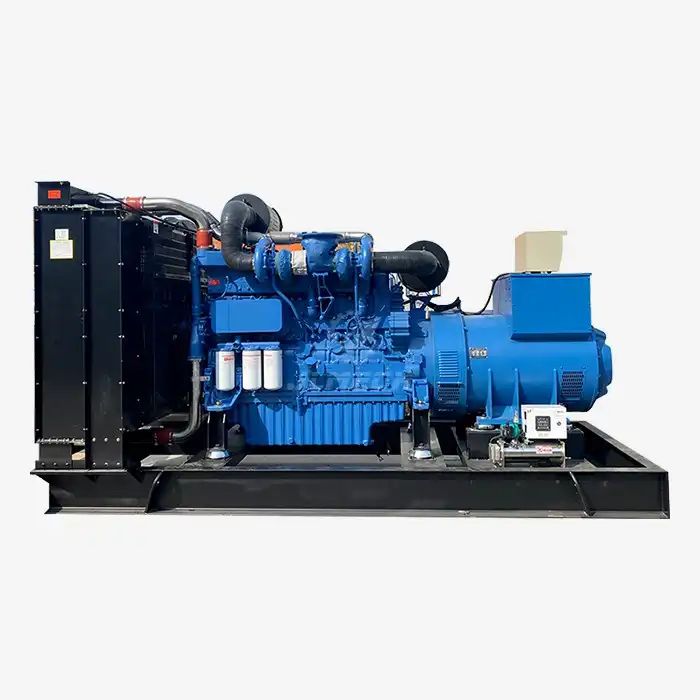 VIEW MOREBackup diesel unit
VIEW MOREBackup diesel unit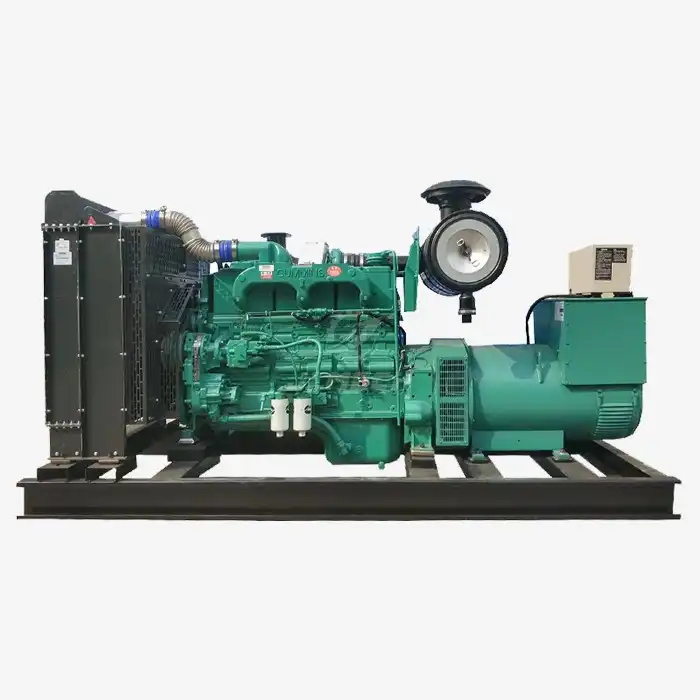 VIEW MOREOff grid generator set
VIEW MOREOff grid generator set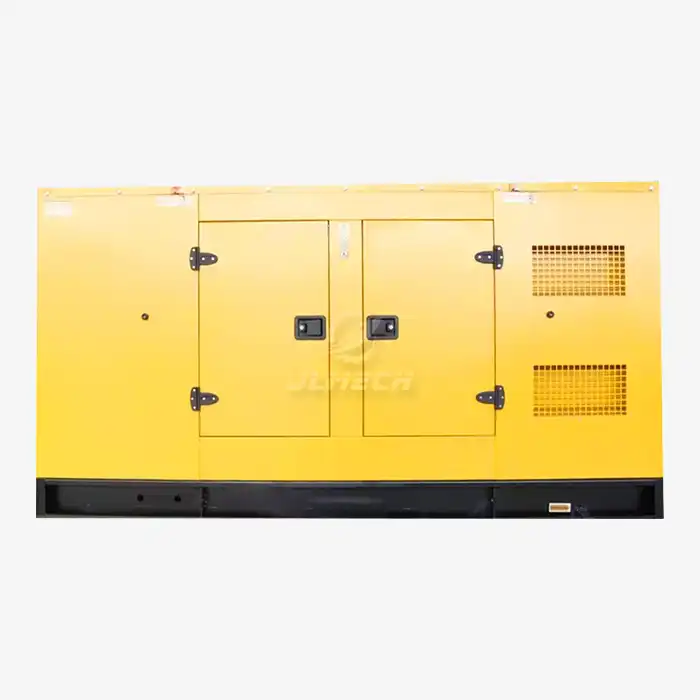 VIEW MOREIndustrial generator unit
VIEW MOREIndustrial generator unit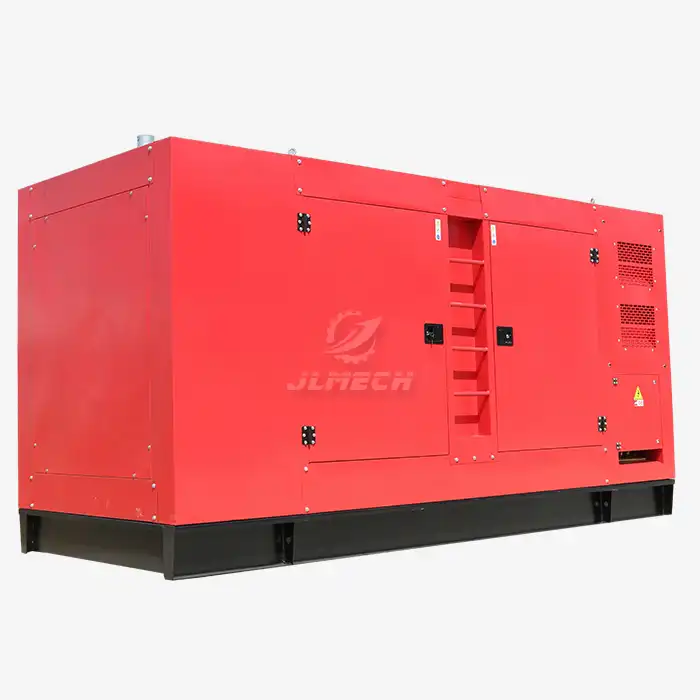 VIEW MORE100kVA Silent Diesel Generator
VIEW MORE100kVA Silent Diesel Generator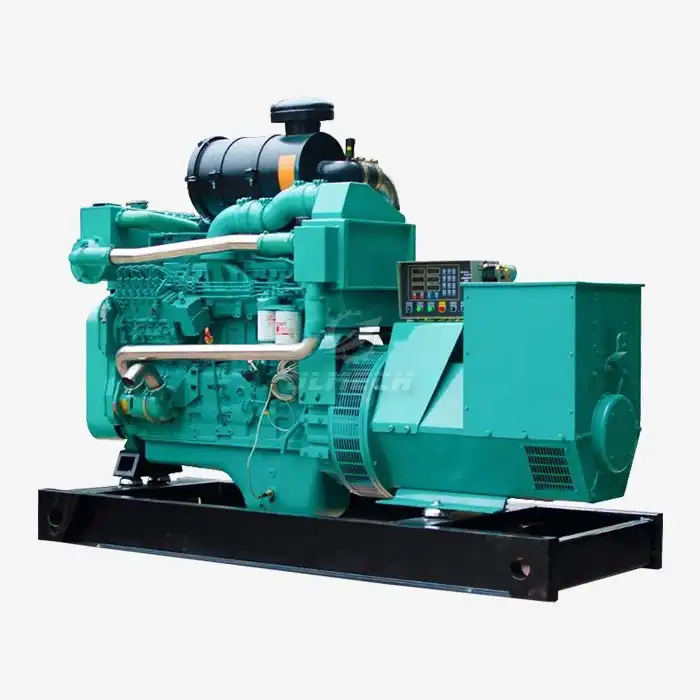 VIEW MOREMarine Portable water-cooled generator
VIEW MOREMarine Portable water-cooled generator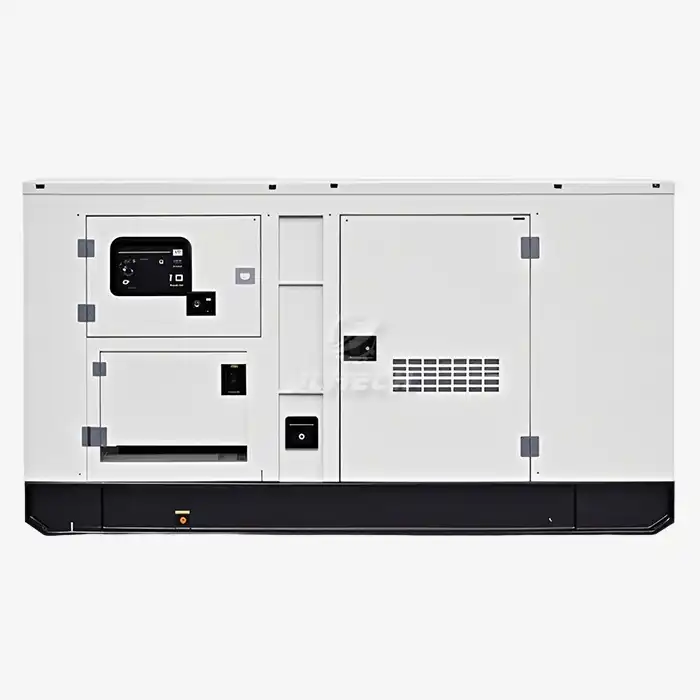 VIEW MOREDiesel generators for building applications
VIEW MOREDiesel generators for building applications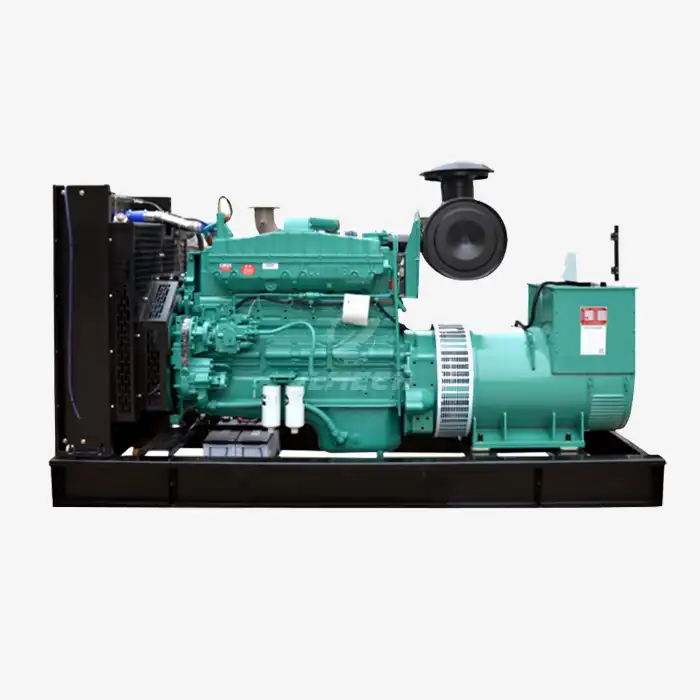 VIEW MOREdiesel generator 100 kw
VIEW MOREdiesel generator 100 kw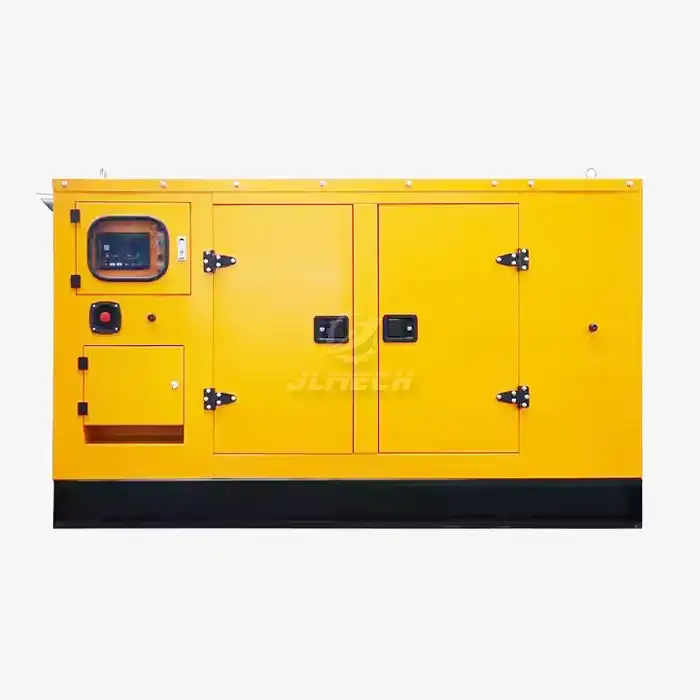 VIEW MORE24kw 30kva silent diesel generator set
VIEW MORE24kw 30kva silent diesel generator set



